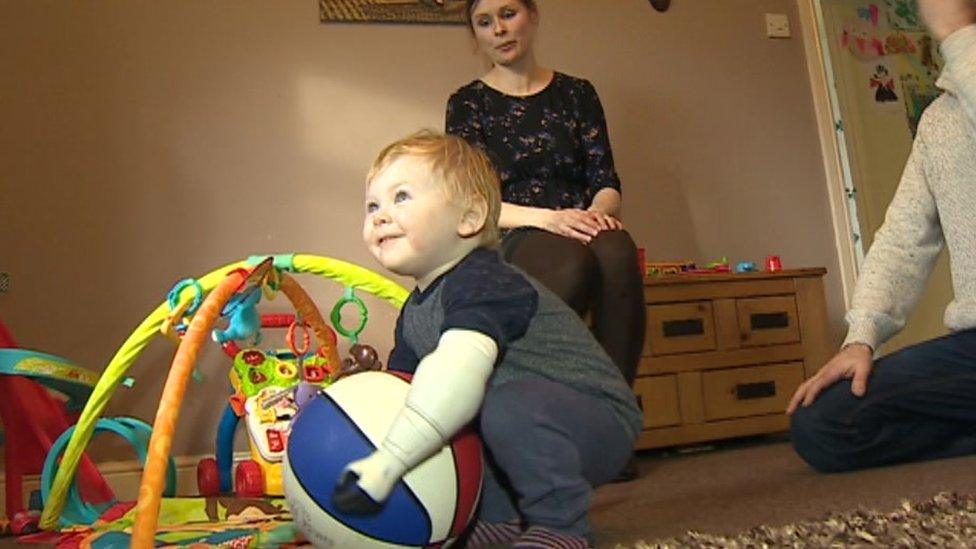Meet the father printing his son's arm
- Published
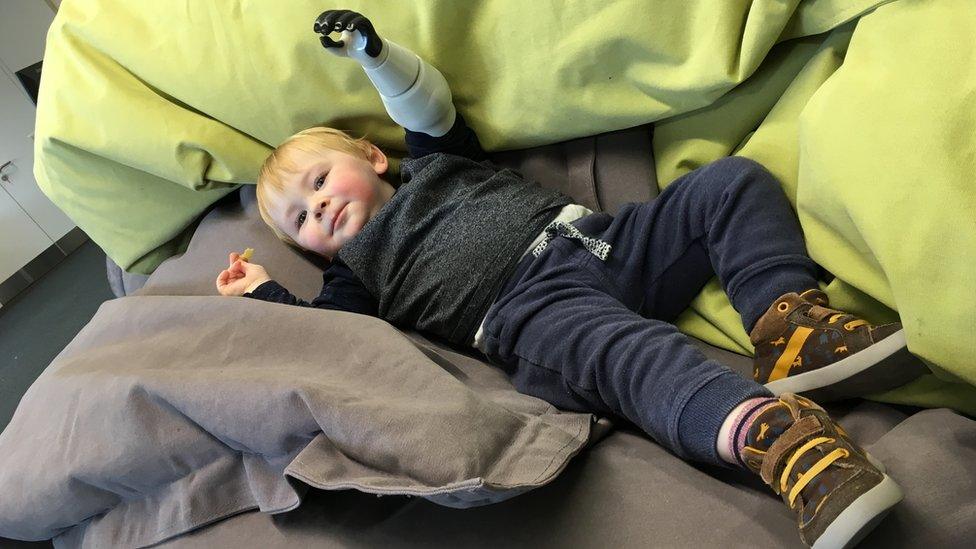
Two-year-old Sol was named after a solar eclipse that was taking place as he was born.
But within hours of his arrival the celebrations were overshadowed for new parents Ben and Kate Ryan.
It was the news anyone would dread. Something was wrong. Sol needed emergency surgery.
He was whisked away from the north Wales maternity ward to Liverpool's Alder Hey Children's Hospital.
"I remember just thinking 'I must be dreaming - this is a nightmare'," recalled Sol's father.
"The consultant in Alder Hey was telling me that almost certainly Sol was going to have to lose his left hand."
At just 10 days old, surgeons made the devastating decision to amputate Sol's left arm just below the elbow because of a blood clot.
"It was a very, very black period of time. I couldn't quite believe what was happening," said Ben.
"I just went into emergency mode - I think everyone does. You just deal with it because you have to."
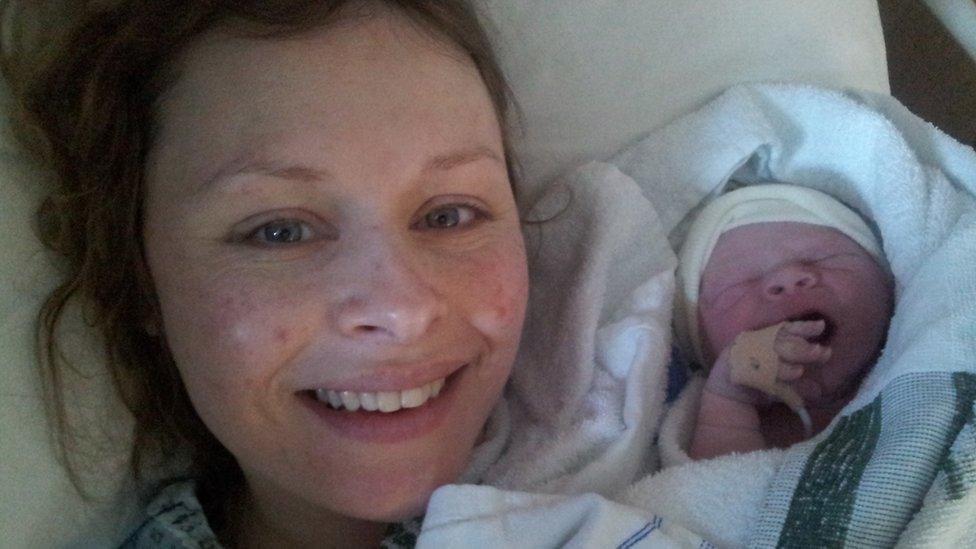
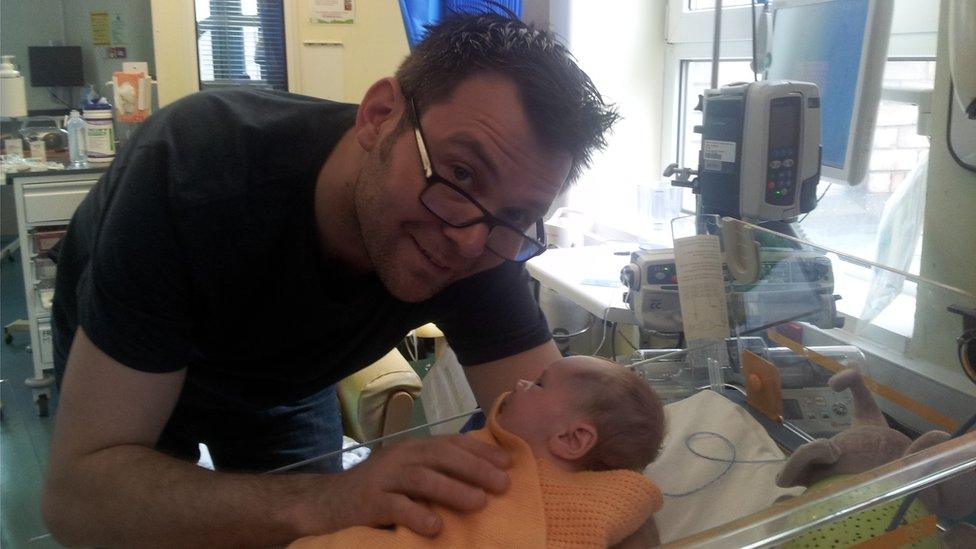

Weeks later, back at the family home in Menai Bridge on Anglesey, Ben was left reflecting on the words of the nurse telling them that Sol's blood group was B-Positive.
"I just took that as a sign - to be positive," said Ben.
"Stop thinking about what he can't do - what can we do? From that point on I just said that I'm not going to dwell on the negatives, I'm only going to be positive. I'm only going to think about what we can do."
And what could Ben do for his son?
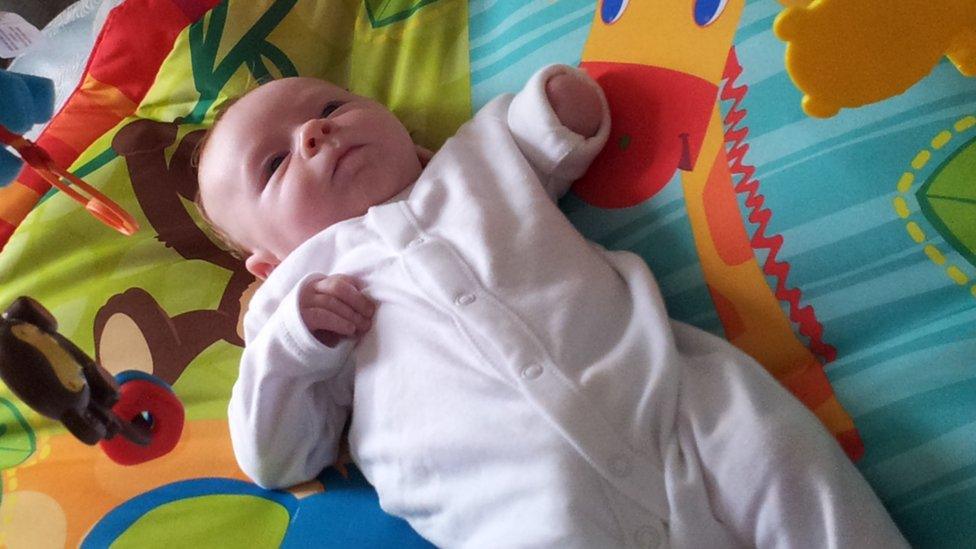
As a further education psychology lecturer by profession, Sol's father was absolutely convinced that early intervention was vital for his son to adapt to life without his arm and hand.
But he soon learnt health professionals would not offer help with prosthetic false arms until Sol was a year old - and even then, the artificial arms would be purely cosmetic with no grabbing or holding action.
Sol's dad did not want to wait a year.
"I just thought that wasn't good enough," stated Ben.
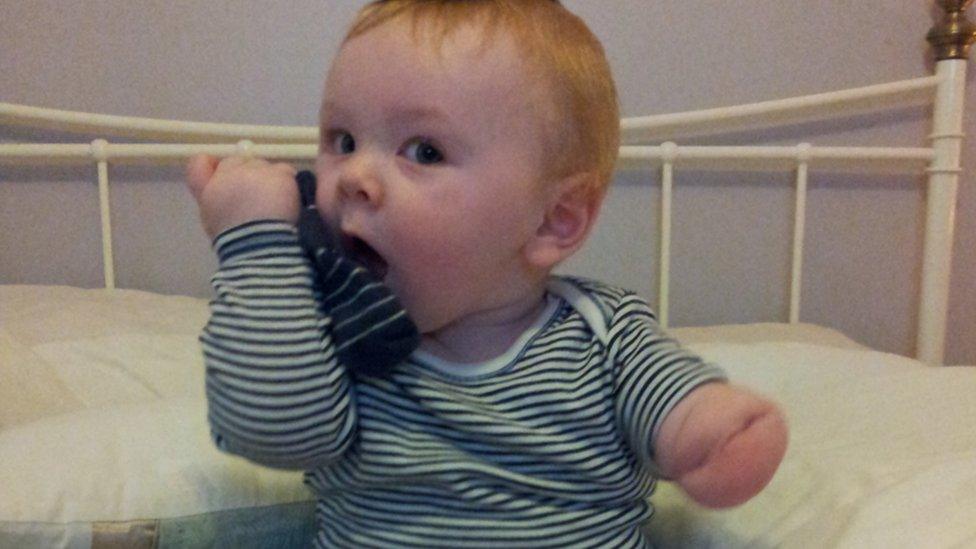
First, he used rolled-up pieces of foam taped to Sol's elbow to see what would happen.
Within minutes, Sol was banging his toys with his hand - and his foam arm. It was the first time he had tried to use the left arm since the amputation.
"Before that, the left arm didn't do anything."
It was the breakthrough moment for Ben. From there, developing a better prosthetic arm for young Sol became an obsession.
Working on the kitchen table with bits of copper pipe and plumbing fittings, Ben came up with an idea for a new design that would operate a hand using tiny movements of the elbow.
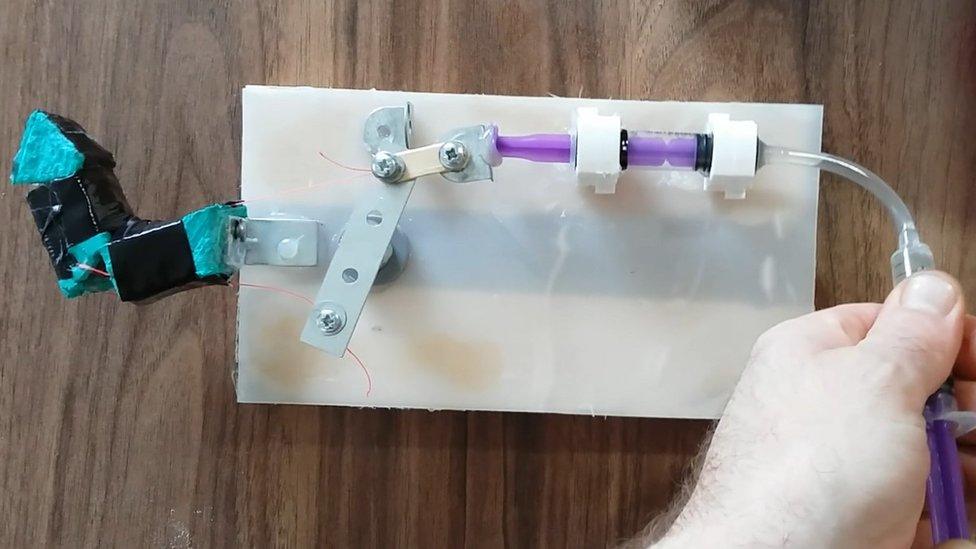
Convinced it would work, he walked into a newly opened innovation laboratory at Bangor University and asked them for help.
"When I started to talk to Ben and found out what he wanted to do and why he wanted to come here, I was quite humbled really," remembered Wyn Griffith, chief technician for Pontio Innovation.
"We'd just moved into this building - what better way to put this new equipment to use than to actually help Ben with his project."
Using state-of-the-art 3D printing technology at the innovation lab, Ben and the university staff were able to turn a mish-mash of DIY store parts and imagination into something much more.
"The best way we can help people, is to help them help themselves - and I think Ben is a good case in point there. We've given Ben the skills and access to the equipment and training so he can actually develop his own ideas," said the university engineer.
Today, Sol has a new prototype of an arm and hand that can grip, with a moveable thumb.
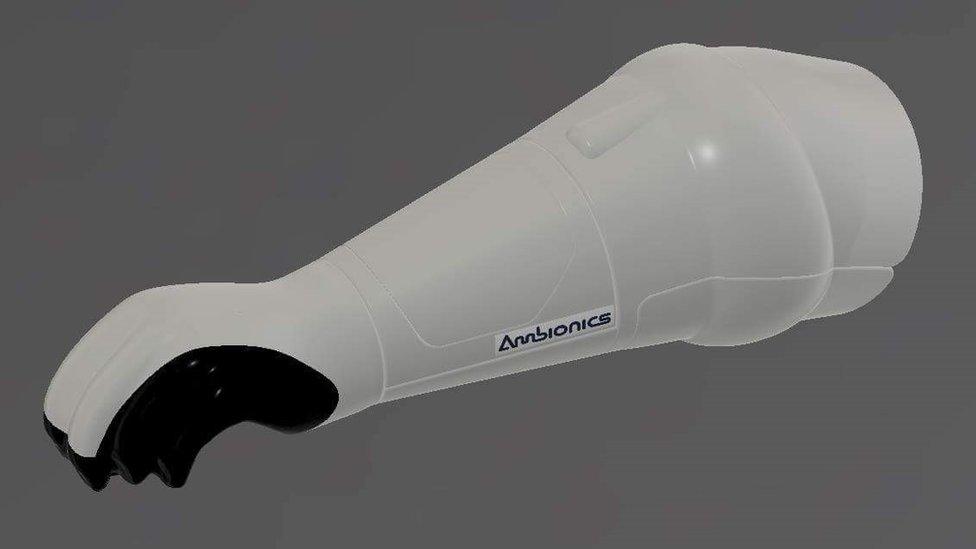
And instead of the three months it takes to cast and build a fibreglass prosthetic through the health service, a new arm can be built and printed from scratch in a matter of days.
It means not only is the young boy getting the early intervention his family are convinced he needs, it has opened up a whole new world of opportunities for his father.
Ben has given up his day job to concentrate full-time on prosthetics, setting up a new company called Ambionics, with Sol firmly the poster boy for the new venture.
Despite being a fledgling start-up, Ben has already won some big name backing. Along with Bangor University's Pontio centre, Ambionics is also being supported by the Life Sciences Hub Wales and its entrepreneurship programme.
He has also won praise from the firm Stratasys, who developed the 3D printers he has been using.
"Ben Ryan's approach to problem solving with 3D printing as a facilitator and the terrific results enjoyed by doing so are indicative of what can be achieved when harnessing this technology," said the firm's head of healthcare solutions, Scott Rader.
New arm for Anglesey boy - it's child's play
So far, the whole project has been funded by family and friends, but will be the focus of a crowd funding campaign on St David's Day on Wednesday, 1 March.
Ben wants to raise at least £150,000 to satisfy medical authorities his arm prosthetics are safe to use, finalise patents, and to develop the design.
If he can raise even more, he wants to see medical research trials to back up his own theories on how young children learn to use artificial limbs.
But as the business moves forward, the focus always returns to Sol - the Ambionic Boy as his dad now calls him.
"He can do 90% of the things a kid with two hands can do, I just want to help him adjust to those 10% of tasks he is going to find difficult," said Ben.
"The point I will relax is when I see him reach for something. I want him to turn around and just be able to pick something up just naturally, and then I'll know that I've done a good job."
